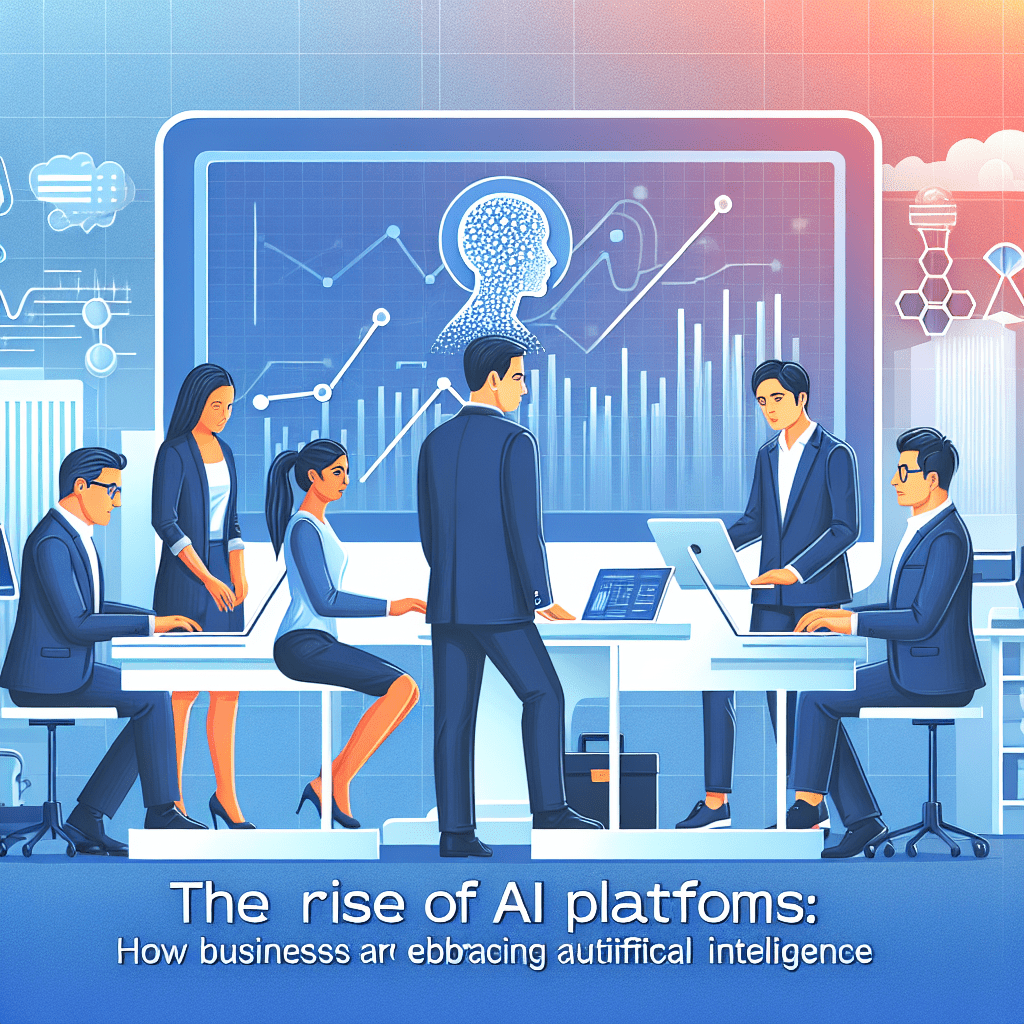Artificial Intelligence (AI) is revolutionizing the way businesses operate and make decisions. With the development of AI Platforms, businesses are now able to leverage advanced algorithms and machine learning techniques to automate processes, gain insights, and improve overall efficiency. In this article, we will explore how businesses are embracing AI Platforms and the impact it is having on various industries.
Understanding AI Platforms
AI Platforms are software frameworks that enable organizations to develop, deploy, and manage AI models and applications. These platforms provide tools for data collection, data preprocessing, training models, and deploying them into production. By using AI Platforms, businesses can easily integrate AI capabilities into their existing systems and workflows.
Benefits of AI Platforms
There are several benefits that AI Platforms offer to businesses:
- Improved decision-making: AI Platforms enable businesses to make data-driven decisions by analyzing large datasets and identifying patterns and trends.
- Automation of repetitive tasks: AI Platforms can automate routine tasks, freeing up employees to focus on more strategic and creative work.
- Enhanced customer experience: AI Platforms can be used to personalize customer interactions, provide recommendations, and deliver more relevant content.
- Increased efficiency: AI Platforms can streamline processes, reduce errors, and optimize resource allocation.
Use Cases of AI Platforms
AI Platforms are being used across various industries to drive innovation and improve business outcomes. Some common use cases include:
- Financial services: AI Platforms are used to detect fraud, optimize trading strategies, and analyze customer behavior.
- Retail: AI Platforms are used for demand forecasting, inventory management, and personalized shopping experiences.
- Healthcare: AI Platforms are used for disease diagnosis, personalized treatment plans, and drug discovery.
- Manufacturing: AI Platforms are used for predictive maintenance, quality control, and supply chain optimization.
Challenges of Implementing AI Platforms
While AI Platforms offer many benefits, there are also challenges that businesses may face when implementing them:
- Data quality and quantity: AI algorithms require large amounts of high-quality data to produce accurate results.
- Talent shortage: There is a shortage of skilled data scientists and AI experts who can develop and deploy AI models.
- Ethical considerations: Businesses must consider ethical implications when using AI Platforms, such as bias in algorithms and data privacy issues.
- Regulatory compliance: Businesses must comply with regulations and standards related to AI use, such as GDPR and HIPAA.
Conclusion
AI Platforms are transforming the way businesses operate by enabling them to harness the power of artificial intelligence. By leveraging AI Platforms, businesses can automate processes, make data-driven decisions, and improve overall efficiency. While there are challenges associated with implementing AI Platforms, the benefits they offer far outweigh the risks. As AI technology continues to mature, we can expect more businesses to embrace AI Platforms and drive innovation across industries.
FAQs
1. What is an AI platform?
An AI platform is a software framework that enables organizations to develop, deploy, and manage AI models and applications.
2. What are the benefits of using AI Platforms?
The benefits of using AI Platforms include improved decision-making, automation of repetitive tasks, enhanced customer experience, and increased efficiency.
3. What are some common use cases of AI Platforms?
Common use cases of AI Platforms include fraud detection in financial services, demand forecasting in retail, disease diagnosis in healthcare, and predictive maintenance in manufacturing.
Quotes
“AI is the new electricity. Just as electricity transformed industries in the past century, AI is now set to revolutionize global business.” – Andrew Ng
#Rise #Platforms #Businesses #Embracing #Artificial #Intelligence


